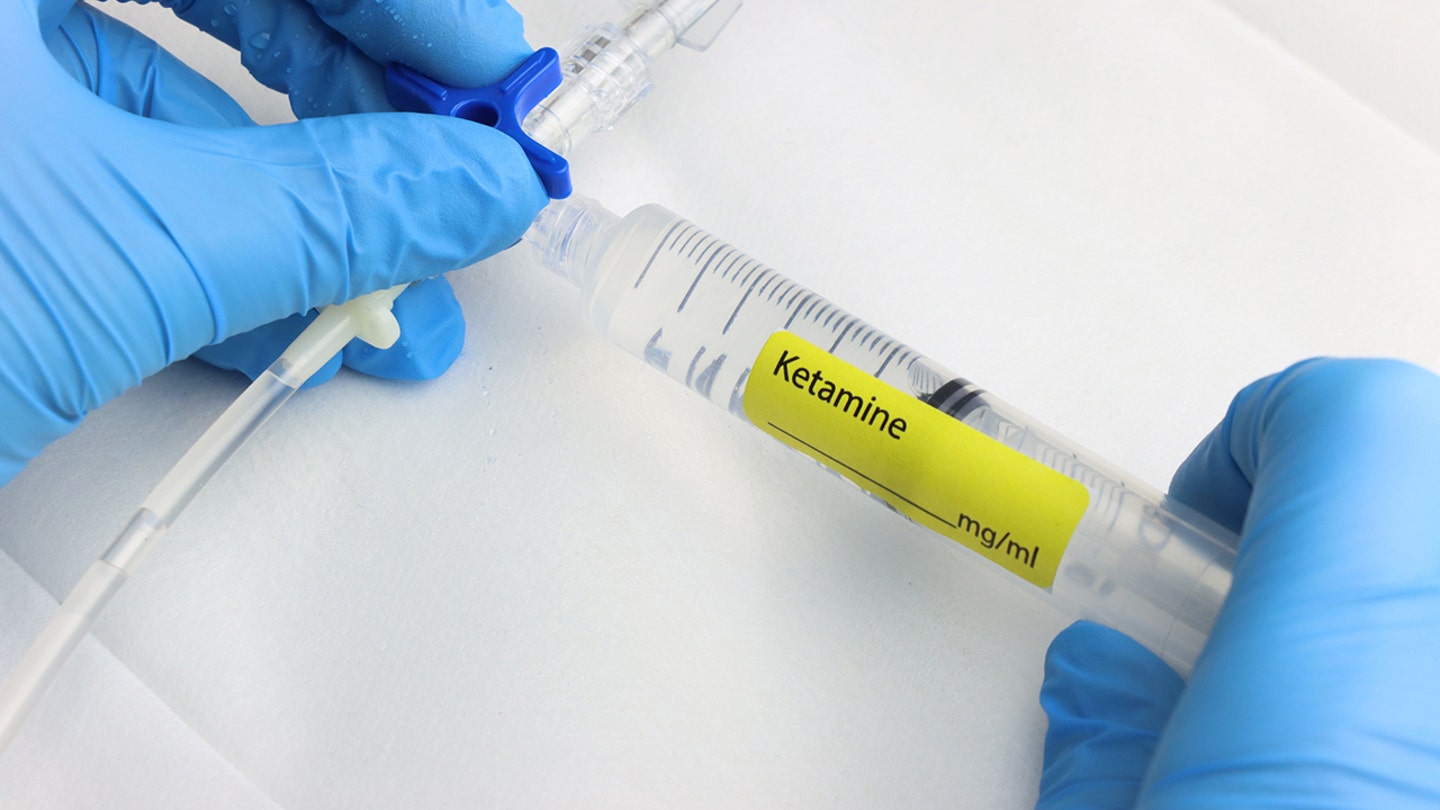Recent arrests made in actor Matthew Perry’s death have cast new light on the dangers of ketamine abuse.
Perry’s Oct. 28th death — which initially appeared to be a drowning in a hot tub at his California home — was later attributed to the “acute effects of ketamine,” as ruled by the Los Angeles County Department of Medical Examiner.
Several people are now charged in connection with the 54-year-old actor’s overdose death — including Perry’s assistant, Kenneth Iwamasa, who allegedly administered excessive amounts of ketamine — as well as multiple physicians and dealers, who are said to have provided the drug.
MAIL-ORDER KETAMINE INJECTIONS CAN BE ‘EXTREMELY DANGEROUS,’ WARNS DR. MARC SIEGEL
On the day of Perry’s death, the “Friends” star received three ketamine injections, according to information in the assistant’s plea agreement.
Here’s a deeper dive into ketamine and the issues around it.
Recent arrests made in actor Matthew Perry’s death have cast new light on the dangers of abusing ketamine. (Getty Images)
What is ketamine?
Intended for use as an anesthetic to be handled by medical doctors and veterinarians, ketamine is also used illegally as a recreational drug.
The Alcohol and Drug Foundation (ADF) describes ketamine as a “dissociative drug,” which means it causes people to feel “separated or detached” from their bodies or physical surroundings.

Perry’s Oct. 28th death — which initially appeared to be a drowning in a hot tub at his California home — was later attributed to the “acute effects of ketamine.” ( Frederick M. Brown/Getty Images)
For some, it can cause hallucinations and alter people’s thoughts and emotions, according to the ADF.
Ketamine is in the PCP (phencyclidine) family,” Dr. Marc Siegel, senior medical analyst for Fox News and clinical professor of medicine at NYU Langone Medical Center, told Fox News Digital.
(PCP is a dissociative, mind-altering drug that may lead to hallucinations.)
MARIJUANA USE AMONG PREGNANT WOMEN IS LINKED TO LOW BIRTH WEIGHT, STUDY FINDS
The off-label use of ketamine has “skyrocketed” in recent years, “despite limited data supporting the safety and efficacy of that practice,” according to a report from Yale School of Medicine.
The drug is usually sold as a colorless, odorless liquid or as a white or off-white powder, according to the National Drug Intelligence Center (NDIC) website.

Five people were arrested and charged in connection with Matthew Perry’s death, including assistant Kenny Iwamasa and Jasveen Sangha, aka “The Ketamine Queen.” (Getty Images/MEGA)
When used in a powder or liquid form, it is often mixed with beverages or smoked with marijuana or tobacco.
The powder form can also be snorted or pressed into tablets.
As a liquid, ketamine can be injected, the NDIC states.
Ketamine approved for depression in health care setting
In 2019, the U.S. Food and Drug Administration (FDA) approved ketamine in a nasal spray format (Spravato, or S-ketamine) for treatment-resistant depression and suicidal ideation.
It is intended to be used in combination with antidepressant pills only under the supervision of a medical professional.
“S-ketamine is regulated very tightly,” the Yale report stated. It has to be delivered intranasally, in a certified health care setting under the supervision of a health care professional, and patients must remain in the facility for two hours after dosing.

Ketamine is intended to be used in combination with antidepressant pills only under the supervision of a medical professional. (iStock)
Ketamine is more commonly used for treatment of severe depression and for pain management, according to Siegel.
CLICK HERE TO SIGN UP FOR OUR HEALTH NEWSLETTER
Dr. Justin Gerstner, psychiatrist and chief medical officer at Ellie Mental Health in Minnesota, uses ketamine therapy in his own practice, saying the response from clients has been “great,” as Fox News Digital previously reported.
Ketamine therapy eliminates the need for patients to take medication every day, according to the doctor.

The drug is usually sold as a colorless, odorless liquid or as a white or off-white powder, according to the National Drug Intelligence Center (NDIC) website. (Getty Images)
Gerstner’s practice usually administers ketamine to clients via IV injection in two- to three-hour sessions, partnered with psychotherapy before and after treatment, he said. While ketamine can work as a “really powerful anti-depressant and anti-suicidal drug,” it is “not the right answer for everybody or everything,” he previously told Fox News Digital.
When does ketamine become deadly?
There are risks and limitations involved, Gerstner warned — including the potential for ketamine to be abused.
There isn’t too much regulation surrounding how ketamine treatments are administered, Gerstner noted, since the drug was previously approved for anesthetic use.
For more Health articles, visit www.foxnews/health
“The field is wide open, and it’s a little bit like the Wild West,” he said. “This is a really powerful medication and the way that it’s used can vary quite drastically.”
At high doses, the drug can cause adverse health issues that affect cardiovascular, respiratory and neurologic function, which can be fatal, said the American Addiction Centers website.
“Common causes of overdose death include excess sedation, respiratory failure, low blood pressure, cardiac arrhythmia, coma and seizures.”
Some of the risks include elevated blood pressure, difficulty breathing, amnesia, seizures, addiction, problems with judgment and coordination, and a lower urinary tract irritation called ulcerative cystitis, according to the same source.
“Common causes of overdose death include excess sedation, respiratory failure, low blood pressure, cardiac arrhythmia, coma and seizures,” said Siegel.
CLICK HERE TO GET THE FOX NEWS APP
In Perry’s case, the report stated that given the high levels of ketamine found in his blood, “the main lethal effects” from the ketamine included “cardiovascular overstimulation and respiratory depression.”
Angelica Stabile of Fox News Digital contributed reporting.

